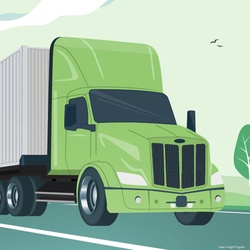
Closed
Green Freight Program — Repower and Replace
Last Update: October 27, 2025
Canada
Funding for Canadian freight industry to reduce emissions
Grant and Funding
At a glance
Funding available
Financing goals
Reduce the ecological footprint
Eligible Funding
- Maximum amount : 5,000,000 $
- Up to 50% of project cost
Timeline
- Receipt of requests is now closed
Eligible candidates
Eligible Industries
- Transportation and warehousing
Location
- Canada
Legal structures
- Non-profit
- Public or Parapublic institution
- For-profit business
- Sole proprietorship
Annual revenue
- All revenue ranges
Organisation size
- All organization sizes
Audience
- Indigenous Peoples
- Canadians
Non-profit candidates
Sector of operation
- Environment
- Economic, Social and Community Development
- Business Associations
Target groups
- Indigenous peoples
- Business owners / entrepreneurs
Revenue structures
- All structures
Scope
- Municipal
- Regional
- Provincial
- National
Overview
The Green Freight Program — Repower and Replace provides non-repayable contributions of up to $5,000,000 per project to support Canadian freight companies in reducing GHG emissions through the repowering of existing vehicles, purchasing low-carbon alternative fuel vehicles, and implementing logistical best practices. This competitive program aims to facilitate energy-efficient improvements in freight fleets across Canada.
Activities funded
- Repowering existing vehicles to operate with lower-carbon or zero-emission alternative fuel sources.
- Purchasing new low-carbon alternative fuel vehicles.
- Implementing logistical best practices to improve fuel efficiency and reduce emissions during goods transportation.
Examples of admissible projects:
$ 1,750,000
Introduce low-carbon transit buses
$ 2,500,000
Replace diesel buses with electric alternatives
$ 1,000,000
Upgrade trucks with renewable diesel systems
$ 900,000
Transition to renewable-fuel powered service trucks
$ 600,000
Repower fleet with dual fuel engine technology
Eligibility
- Applicants must own or have a long-term lease agreement for a fleet of one or more eligible freight transportation vehicles.
- Projects must fall under one of the following categories: repowering existing vehicles, purchasing low-carbon alternative fuel vehicles, or implementing logistical best practices.
- The proposed projects must have the written authority from the lessor to make vehicle modifications, if applicable. A copy of the long-term lease agreement must be provided at the time of application.
- Applicants must submit an enhanced fleet energy assessment with their proposal, conducted by either the applicant or a third-party energy assessor on or after January 1, 2019.
- Proposals from not-for-profit organizations, or provincial, territorial, regional, or municipal governments, or Indigenous businesses or community groups may request an increase in the maximum funding payable.
- All applications for purchasing low-carbon alternative fuel vehicles must include a commitment to using a minimum average blend of 1% renewable or non-fossil fuels from the first refueling to March 31, 2029.
Who is eligible?
- Canadian freight companies
- Not-for-profit organizations
- Provincial, territorial, regional, or municipal governments or their departments or agencies
- Indigenous businesses or community groups
Who is not eligible
This grant excludes certain companies related to softwood lumber due to ongoing trade disputes. The restrictions ensure that funds are directed toward sectors beneficial to the program's environmental goals.
- Softwood lumber companies.
- Companies vertically integrated with softwood lumber production.
Eligible expenses
- Costs for repowering existing vehicles, including engines and drive trains, to operate on lower-carbon or zero-emission fuels.
- Incremental costs for purchasing low-carbon, alternative fuel vehicles compared to conventional diesel vehicles.
- Other project costs associated with the purchase of new vehicles powered by low-carbon alternative fuels.
- Costs for implementing logistical best practices aimed at improving fuel efficiency and reducing emissions.
Eligible geographic areas
- Companies operating in Canada.
Selection criteria
- Submission of an enhanced fleet energy assessment that references and recommends the activities proposed in the project application, meeting requirements specified in NRCan’s Fleet Energy Assessment Checklist.
- Commitment to fueling new or repowered vehicles with a minimum average blend of 1% renewable or non-fossil fuels (with merit points awarded for a commitment of 40% or more).
How to apply
1
Complete Application Package
- Fill out the application form provided by NRCan.
- Ensure that all required supporting documents are compiled, including a completed green freight assessment, quotes for proposed activities, proof of funding, and any additional supporting documentation for assertions.
- Include a signed and dated attestation from a duly authorized officer of your organization.
2
Prepare Supporting Documentation
- Ensure all supporting documents are saved in PDF format.
- Ensure the total file size of attachments doesn’t exceed the web form's limit; otherwise, prepare to send the excess by email.
3
Submit Application via NRCan Web Form
- Visit NRCan’s application web form to submit your completed application package.
- Attach all required documents through the web form.
- Submit the application by 23:59 Eastern Standard Time, November 16, 2023.
4
Send Additional Documentation by Email (if needed)
- If your electronic submission exceeds the maximum file size, forward additional attachments by email.
- Ensure the subject line contains the project name and applicant's name when sending these additional documents.
- Send to the email address: freightassessment-evaluationdeflotte@nrcan-rncan.gc.ca.
5
Obtain Confirmation of Submission
- Wait for a notification from the program acknowledging receipt of your application.
- Consider your application successfully received only once you have this acknowledgment from NRCan.
Additional information
- The maximum funding per project proposal varies depending on the activity type, but overall funding from all government levels cannot exceed specific percentages of total project costs unless specific conditions apply.
- Applicants may enhance their applications by ensuring a commitment to fuel new or repowered vehicles with a minimum of 40% renewable or non-fossil fuels, impacting their merit points.
- Successful applicants are required to submit a final report including vehicle registration, ownership documentation, and measureable project outcomes, upon completion.
- Documentation such as long-term lease agreements and written permissions are required for applicants proposing modifications under certain conditions.
- Collaborations with Indigenous businesses or community groups may allow for increased funding, emphasizing the importance of inclusivity in project proposals.
- Applications must include a comprehensive enhanced fleet energy assessment, which can be conducted internally or by third-party experts.
Contacts
freightassessment-evaluationdeflotte@nrcan-rncan.gc.ca
Canada
Apply to this program
Frequently Asked Questions about the Green Freight Program — Repower and Replace Program
Here are answers to the most common questions about the Green Freight Program — Repower and Replace. This section explains what the program is, how much funding is available, eligibility requirements, application deadlines, and other important details to help you determine if this grant is right for your business.
What is the Green Freight Program — Repower and Replace?
How much funding can be received?
Who is eligible for the Green Freight Program — Repower and Replace program?
What expenses are eligible under Green Freight Program — Repower and Replace?
Who can I contact for more information about the Green Freight Program — Repower and Replace?
Where is the Green Freight Program — Repower and Replace available?
Is the Green Freight Program — Repower and Replace a grant, loan, or tax credit?
Apply to this program
More programs like this

Grant and FundingOpen
Incentives for medium and heavy-duty zero-emission vehicles (iMHZEV) Program
Transport Canada (TC)Incentives to purchase or lease medium- heavy-duty ZEVs
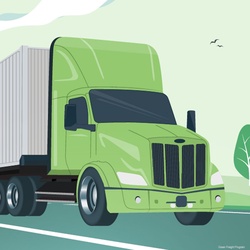
Grant and FundingOpen
Green Freight Program — Assess and Retrofit
Natural Resources Canada (NRCan)Supports energy-efficient retrofits for Canadian freight fleets
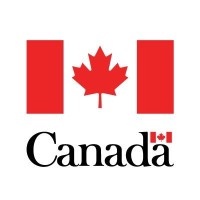
Grant and FundingClosed
Enhanced Road Safety Transfer Payment Program (ERSTPP)
Transport Canada (TC)Funds projects to enhance road safety and reduce traffic injuries
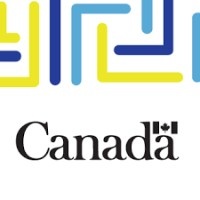
Grant and FundingClosed
Advancing Accessibility Standards Research
Accessibility Standards Canada (ASC)Supports research advancing federal accessibility standards in Canada
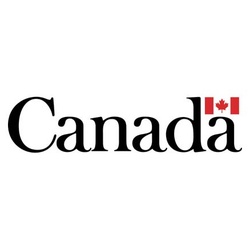
Grant and FundingOpenClosing Soon
Critical Minerals Infrastructure Fund – Shovel ready Stream
Government of CanadaSupports infrastructure projects for critical minerals development in Canada
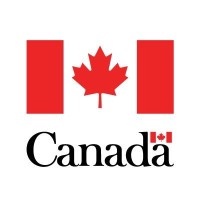
Grant and FundingClosed
On-road Transportation Decarbonization — R&D Projects
Natural Resources Canada (NRCan)Funding for research and development projects in transportation

Grant and FundingClosed
Critical Minerals Infrastructure Fund – Preconstruction Stream
Government of CanadaSupports infrastructure projects advancing critical minerals development in Canada

Grant and FundingClosed
Zero Emission Vehicle Awareness Initiative — Medium- and Heavy-Duty Vehicles and Clean Fuels
Natural Resources Canada (NRCan)Funding for awareness projects of ZEVs, stations and clean fuels

Grant and FundingClosed
Zero Emission Vehicle Awareness Initiative — Light-Duty Vehicle — For-profit
Natural Resources Canada (NRCan)Funding to increase awareness for the reduction of vehicle emission

Partnering and CollaborationGrant and FundingOpen
Strategic Innovation Fund (SIF)
Innovation, Science and Economic Development Canada (ISED)Strategic Innovation Fund supports transformative Canadian economic investments
Sign up to our platform to access the Green Freight Program — Repower and Replace information sheet for free
Get access to 4,000+ programs, practical guides, personalized alerts, and an AI assistant to support your grant applications.